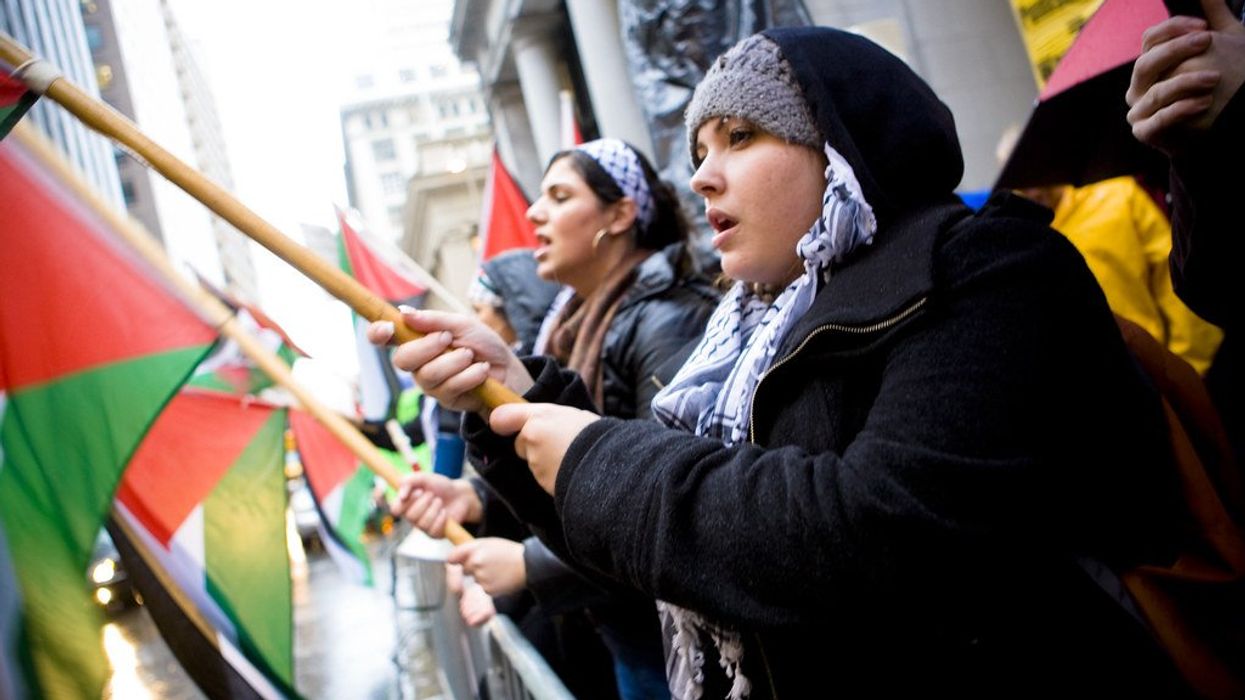A Russian international student at Northwestern came to the U.S. to study journalism “to work as a reporter in a country where I would feel safe,” she said.
“I couldn't speak up against the government in Russia, I was at huge risk of being imprisoned, and I thought that it was over, but now very scarily similar things are happening in the U.S. as well, and I just have deja vu,” she said. The student is being kept anonymous for fear of retaliation against her legal status for speaking out.
The previous termination of students from the Student and Exchange Visitor Information System (SEVIS) or the revocation of student visas prompted her to reconsider reporting on articles critical of the Donald Trump administration or related to pro-Palestinian protests.
“It's just this constant atmosphere of panic and uncertainty around you that you can't plan your life for like the next 10 minutes, that makes me feel uncertain,” she added.
While the Trump administration restored the SEVIS statuses of students who were targeted because they had minor criminal infractions, the legal fight for international students targeted for pro-Palestinian perspectives continues in the courts.
On April 25, the Trump administration announced that it would restore visas that were revoked based on the individual's appearance on the National Crime Information Center, an unreliable database that led immigration authorities to mistakenly target students with parking tickets or dismissed charges. Several of the at least 1,400 students whose SEVIS statuses were revoked had their statuses suddenly restored. U.S. Immigration and Customs Enforcement, more commonly known as ICE, also announced it was developing a new policy for its F1 deportations.
But for students who were targeted for demonstrating pro-Palestinian views, the American Association of University Professors (AAUP) is continuing its lawsuit against U.S. Secretary of State Marco Rubio, who, the association alleges, “ implement[ed] the ideological-deportation policy.” Most recently, on April 23, AAUP general counsel Veena Dubal said the judge “indicated that he might take the case to trial.”
“It doesn't appear that the widespread status revocations were related to speech, per se. And so, whatever policy they move forward with, I think will be more targeted, but I suspect that it will continue to be around ideological lines, at least encompass ideological lines,” Dubal said. AAUP’s lawsuit is on behalf of Columbia, NYU, and Rutgers professors who allege their ability to conduct a classroom is impacted by the fear around ideological deportations.
The White House's multi-pronged campaign against college campuses in the United States has been marked, in part, by revoking millions in grant funding for STEM and Humanities research, imposing demands for how universities should reform their admissions and hiring practices, and requiring the eradication of diversity, equity, and inclusion programs and curriculum.
“The [Trump] administration has launched a targeted campaign against higher ed, branding social justice education as divisive, dismissing research on race and inequality as propaganda and threatening to strip federal funding from any institutions that fail to comply,” Professor Anthony Hernandez at the Educational Policy Studies Department at the University of Wisconsin, Madison said. “It's a direct attempt to discipline universities and force them to abandon critical inquiry about power, privilege, and history.”
ACLU Michigan attorney Ramis Wadood represented international students whose SEVIS statuses were previously jeopardized by ICE’s use of the National Crime Information Center. Before the April 25 announcement, Wadood and most others were unaware of where ICE was locating students with minor infractions. The announcement clarified they were using the National Crime Information Center.
“None of our plaintiffs have been charged with, let alone committed, a crime. Their criminal records are clean. Maybe there's a speeding ticket or a parking ticket here or there, maybe there's an arrest that didn't lead to a charge,” Wadood said. “But as far as their actual criminal records go, it's completely clean.”
Dubal said AAUP’s case against Rubio, done in tandem with AAUP chapters at Columbia, NYU, and Rutgers, is important because the act of ideological deportations is unconstitutional.
“The constitutional impacts of these unlawful acts are huge and chilling, and [universities] can stand up against the administration, both politically as well as legally — some universities are doing that,” Dubal said.
According to Hernandez, higher education is at a crossroads and must answer: “Will college universities come to be spaces of free inquiry, or will they be turned into instruments of political power?”
“We tend to think about [universities as] places where students are not just going to get knowledge, but they're also going to learn how to question the world around them,” Hernandez said. “This assault on higher education isn't just about the curriculum. It is an effort to control what students can think, what faculty can teach, and what kind of future our society imagines.”
Sarah Spreitzer from the American Council on Education said the uncertainty surrounding student visas in the U.S. will have economic and educational impacts, pointing to the over 1 million international students in the U.S. who contribute to its economy.
“I think the concern is we will see a drop in the number of international students because there is this uncertainty around our visa processes, or in a feeling of perhaps they're not welcome,” Spreitzer said. “And that not only is going to have an economic impact, that's also going to have an impact on our education and our research missions.”
Hernandez described the Trump administration’s attack on higher education as “unprecedented.”
“And I wonder if the American mind and heart have the courage to resist. I sure hope so.”
This article is a part of a short series examining the Trump administration’s impact on international students in American higher education. The second and final installation will focus on the instability surrounding the F1 visa in America today and its impacts on international students and faculty.
Atmika Iyer is a graduate student in Northwestern Medill’s Politics, Policy, and Foreign Affairs reporting program. Atmika is also a journalism intern with the Fulcrum.




















